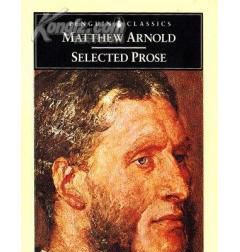|
爱思英语编者按:马修·阿诺德,英国的大批评家之一。名篇众多,李赋宁先生对他的 “蜜与腊”的比喻多次引述。阿诺德的评论在维多利亚时代首屈一指,胜过麦考莱、卡莱尔等人。 
What is it to grow old?
Is it to lose the glory of the form,
The lustre of the eye?
Is it for beauty to forego her wreath?
Yes, but not for this alone.
什么为之老去?
是失去了引以为傲的形貌?
双眸神采淡去?
亦或是美丽的容颜卸去了桂冠?
是的,然而远非仅此。
Is it to feel our strength -
Not our bloom only, but our strength -decay?
Is it to feel each limb
Grow stiffer, every function less exact,
Each nerve more weakly strung?
是感受到自身的力量
不止青春不再,而且是气力的衰退?
是深觉肢体日益僵硬
动作迟缓
神经松弛萎谢? Yes, this, and more! but not,
Ah, 'tis not what in youth we dreamed 'twould be!
'Tis not to have our life
Mellowed and softened as with sunset-glow,
A golden day's decline!
是的,就是这样,还有,但并非
哦,这非你我年轻时所幻想的老年!
我们的生命没有变得
如同夕阳的光一般成熟柔和
如一日余晖的熹微! Tis not to see the world
As from a height, with rapt prophetic eyes,
And heart profoundly stirred;
And weep, and feel the fulness of the past,
The years that are no more!
看着世界
不再自高处以狂喜预言的眼
心不易深深撼动
哭泣,或感受逝去岁月的完满
时之往矣 It is to spend long days
And not once feel that we were ever young.
It is to add, immured
In the hot prison of the present, month
To month with weary pain.
长日漫漫
未觉自己曾拥有年轻
它在岁月中一点点地积累,凝固
于当下的囚笼里,无数日月
增加的虚弱疼痛 It is to suffer this,
And feel but half, and feebly, what we feel:
Deep in our hidden heart
Festers the dull remembrance of a change,
But no emotion none.
它是忍受着所有这一切
以不完全的心,微弱的,去感受一切
在心灵的深处
那些枯燥记忆已慢慢腐化
不遗一丝情感——丝毫都没有 It is last stage of all
When we are frozen up within, and quite
The phantom of ourselves,
To hear the world applaud the hollow ghost
Which blamed the living man.
终于来到了人生的最后舞台
当内心冻结,惟剩下
自身的幽灵走动
我们听到世界欢迎着死神的到来
他总谴责着生之众人 更多信息请访问:http://www.engbus.cn/ 英语巴士网 实习生 joyeh 编辑
| 








